Table of Contents
Daily Current Affairs for Government Exams:
Today Current Affairs:2nd April 2020 for UPSC IAS exams, State PSC exams, SSC CGL, State SSC, RRB, Railways, Banking Exam & IBPS, etc
Contents:
- Realization and repatriation of proceeds for exports
- Goods and Services Tax (GST) Collections:
- Countercyclical capital buffers (CCyB)
- Price Monitoring & Resource Unit (PMRU)
- Centre redefines Jammu and Kashmir domicile rules
- Electronic Way Bill
- Schemes for Electronic Manufacturing:
- Norms Relaxed under MPLAD Scheme
- World Autism Awareness Day
- Other important current affairs:
1. Realization and repatriation of proceeds for exports:
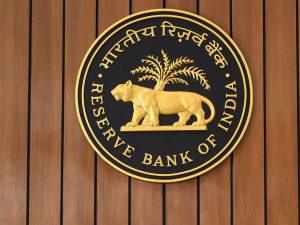
RBI has extended the time period for realization and repatriation of proceeds for exports made up to or from 31 July to 15 months from the date of export.
- Presently the value of the goods or software exports made by the exporters is required to be realized fully and repatriated to the country within a period of 9 months from the date of exports.
- In view of the disruption caused by the COVID-19 pandemic, the time period for realization and repatriation of export proceeds for exports made up to or on July 31, 2020, has been extended to 15 months from the date of export.
- The measure will enable the exporters to realize their receipts, especially from COVID-19 affected countries within the extended period and also provide greater flexibility to the exporters to negotiate future export contracts with buyers abroad.
2.Goods and Services Tax (GST) Collections:
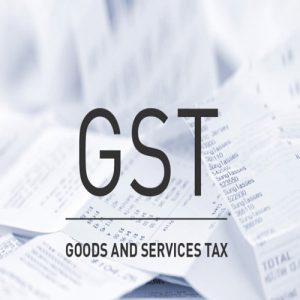
Goods and Services Tax (GST) collections for March 2020 stood at ₹97,597 crore, dropping below the ₹1 lakh-crore mark after four months.
GST Collected
- Of the total collections, central GST stood at ₹19,183 crores, State GST was at ₹25,601 crore and integrated GST was ₹44,508 crores.
- The government had settled ₹19,718 crores to CGST and ₹14,915 crores to SGST from IGST as regular settlement.
- In addition, the Centre also apportioned unsettled balance IGST of ₹6,000 crores on an ad-hoc basis in a 50:50 ratio between the Centre and States.
Impact of COVID-19:
- The March revenue collections are based on the business conducted in February.
- The collections do not take into account the full impact of COVID-19 and the consequent shutdown of many business sectors in India.
- It has been warned that the revenues for the month of April 2020 are likely to dip much further.
- Fall in Collection from Imports
- Although GST revenue from domestic transactions dropped 4% in comparison with March 2019, there was a 23% fall in the tax collected on the import of goods.
- Global trade was affected by COVID-19 in February itself.
3. Countercyclical capital buffers (CCyB) :

For dealing with the coronavirus-led slowdown, the Reserve Bank of India (RBI) announced that banks don’t need to activate countercyclical capital buffers (CCyB) for one more year, which means the banks can utilize the capital earmarked for the buffer.
Countercyclical capital buffers require banks to hold capital at times when credit is growing rapidly so that the buffer can be reduced if the financial cycle turns down or the economic and financial environment becomes substantially worse.
- The framework on the countercyclical capital buffer (CCyB) was put in place by the RBI in terms of guidelines issued in 2015 wherein it was advised that the CCyB would be activated as and when the circumstances warranted.
- The framework envisages the credit-to-GDP gap as the main indicator, which is used in conjunction with other supplementary indicators.
- It requires banks to build up a buffer of capital in good times, which may be used to maintain the flow of credit to the real sector in difficult times.
- The buffer was also meant to restrict the banking sector from indiscriminate lending in the periods of excess credit growth, which have often been associated with the building up of system-wide risk.
- Based on the review and empirical analysis of CCyB indicators, it has been decided that it is not necessary to activate CCyB for a period of one year or earlier, as may be necessary.
4.Price Monitoring & Resource Unit (PMRU) :
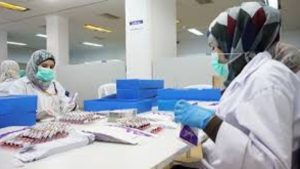
Jammu & Kashmir Union Territory has become the 12th State where the Price Monitoring & Resource Unit (PMRU) has been set up by the National Pharmaceutical Pricing Authority (NPPA).
NPPA setup PMRUs
- Kerala, Odisha, Gujarat, Rajasthan, Punjab, Haryana, Nagaland, Tripura, Uttar Pradesh, Andhra Pradesh, and Mizoram.
Price Monitoring & Resource Unit (PMRU) is a registered society and shall function under the direct control and supervision of the State Drug Controller of respective states. The unit shall be funded by NPPA for its recurring and non-recurring expenses.
- It Helps NPPA and State Drug Controller in ensuring the availability and accessibility of medicines at affordable prices.
- Organize seminars, training programs, and other information, education and communication (IEC) activities in the areas of availability and affordability of medicines for all.
- Collect samples of medicines, collect and analyze data and make reports with respect to availability and over-pricing of medicines for taking action under the provisions of Drug Price Control Order (DPCO).
5. Centre redefines Jammu and Kashmir domicile rules :
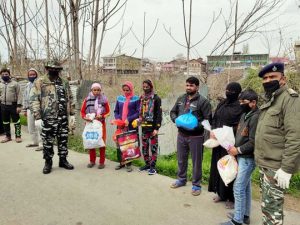
Centre redefines Jammu and Kashmir domicile rules opening up various categories of jobs in the region to people from across the country.
- The order has been defined under the J&K Civil Services (Decentralisation and Recruitment) Act.
- In law, domicile is the status or attribution of being a lawful permanent resident in a particular jurisdiction.
- As per the Changes, who is now deemed to have domicile
- Anyone “who has resided for a period of fifteen years in the UT of J&K”.
- Or has studied for a period of seven years and appeared in class 10th/12th examination in an educational institution located in the UT of J&K.
- Or those registered as migrants and their children.
- Or the children of those central government officials, All India service officials, Officials of Public sector undertaking, autonomous body of the central government, public sector banks, officials of statuary bodies officials of central universities and recognized research institutes of the central government who have served in J&K for a period of ten years.
- Or children of residents of J&K who reside outside the Union Territory in connection with employment or business or for other professional or vocational reasons, but whose parents fulfill any of the conditions provided in the latest gazette notification will also be entitled to domicile status.
- The order now formally allows people from outside J&K to apply for jobs in the UT.
- While Level IV jobs have been reserved for people with domicile status – as per their definition in the order – other non-gazetted and gazetted jobs have been opened for people from across the country, including people domiciled in J&K.
6.Electronic Way Bill:
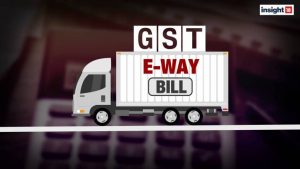
Recently, the transporters have raised concerns over potential penalties arising from expired electronic way (e-way) bills.
- Since 15th March 2020 when states started to lock their borders down culminating in a national lockdown announced by the Centre, hundreds of truckers have been stranded across the country.
- In a petition to the Ministry of Finance, a group of truckers pointed out that the e-way bills could not be extended by the transporters on account of closure of offices, godowns, and unavailability of staff.
- Truckers requested for the issue of immediate directions/guidelines to GST Commissioners (all States/UTs) to allow the vehicles in transit and goods not delivered to be exempted from any scrutiny or penal provisions to reach their destination smoothly, even if the e-way bill had expired.
Electronic Way Bill
- E-Way Bill is a compliance mechanism wherein by way of a digital interface the person causing the movement of goods uploads the relevant information prior to the commencement of movement of goods and generates an e-way bill on the GST portal.
- An electronic waybill or ‘e-way bill’ system offers the technological framework to track intra-state as well as inter-state movements of goods of value exceeding Rs 50,000, for sales beyond 10 km in the Goods and Services Tax (GST) regime.
- When an eway bill is generated, a unique E-way Bill Number (EBN) is allocated and is available to the supplier, recipient, and the transporter.
- It was launched to
- Facilitate faster movement of goods.
- Improve the turnaround time of vehicles.
- Help the logistics industry by increasing the average distances travelled and reducing the travel time as well as costs.
7.Schemes for Electronic Manufacturing:

Recently, the government notified three schemes involving total incentives of around Rs 48,000 crore for electronics manufacturing,
- The Production Linked Incentive Scheme (PLI) for large scale electronics manufacturing.
- The scheme for Promotion of Manufacturing of Electronic Components and Semiconductors (SPECS).
- The modified Electronics Manufacturing Clusters (EMC 2.0) Scheme.
The modified Electronics Manufacturing Clusters (EMC 2.0) Scheme.
- The schemes are expected to
-
- Attract Rs 1 lakh crore investment in the sector.
- Boost local electronics manufacturing and generate manufacturing revenue potential of Rs 10 lakh crore by 2025.
- Create 20 lakh direct and indirect jobs by 2025.
Production Linked Incentive Scheme (PLI) for Large Scale Electronics Manufacturing
- The scheme proposes a financial incentive to boost domestic manufacturing and attract large investments in the electronics value chain including electronic components and semiconductor packaging.
- Under the scheme, electronic manufacturing companies will get an incentive of 4 to 6% on incremental sales (over a base year) of goods manufactured in India and covered under target segments, to eligible companies over a period of next 5 years.
Scheme for Promotion of Manufacturing of Electronic Components and Semiconductors
- Under the scheme, a financial incentive of 25% of capital expenditure has been approved by the Union Cabinet for the manufacturing of goods that constitute the supply chain of an electronic product.
- The SPECS notified for manufacturing of electronics components and semiconductors have a budget outlay of Rs 3,285 crore spread over a period of eight years.
- The government estimates that push for manufacturing of electronics components and electronic chips will create around 6 lakh direct and indirect jobs
8.Norms Relaxed under MPLAD Scheme:
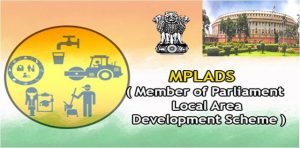
The government has provided for “one-time exemption in the furnishing of utilization certificate” for release of the first installment, and exemption from the furnishing of audit certificate for release of the second installment under the Members of Parliament Local Area Development (MPLAD) Scheme.
- This exemption is applicable only for the financial year 2020-21.
- The exemption is for the Members of Parliament (MPs) who have decided to contribute to COVID-19.
- The latest announcement comes after allowing a one-time dispensation under the Scheme to allow MPs to recommend funds for the purchase of medical testing and screening equipment for government hospitals and dispensaries in the wake of COVID-19.
- Each year under MPLADS, MPs receive Rs 5 crore in two installments of Rs 2.5 crore each. Funds under MPLADS are non-lapsable.
- Lok Sabha MPs have to recommend the district authorities projects in their Lok Sabha constituencies, while Rajya Sabha MPs have to spend it in the state that has elected them to the House.
- Under the MPLADS rules, an MP can donate a maximum of Rs 1 crore to a trust or a public fund.
Members of Parliament Local Area Development Scheme
- It was announced in December 1993 and initially came under the control of the Ministry of Rural Development.
- Later, in October 1994, it was transferred to the Ministry of Statistics and Programme Implementation.
- The 1st Guidelines were issued in February 1994, covering the concept, implementation, and monitoring of the Scheme.
- It is a Central Sector Scheme.
- The annual MPLADS fund entitlement per MP constituency is ₹5 crore.
Objective:
- To enable MPs to recommend works of developmental nature with emphasis on the creation of durable community assets based on the locally felt needs to be taken up in their Constituencies.
- Lok Sabha Members can recommend works within their constituencies and elected Members of Rajya Sabha can recommend works within the State they are elected from.
- Nominated Members of both the Rajya Sabha and Lok Sabha can recommend works anywhere in the country.
- To create durable assets of national priorities viz. drinking water, primary education, public health, sanitation, and roads, etc.
9.World Autism Awareness Day:

The World Autism Awareness Day is observed on April 2 by the members of the United Nations. The day is observed to take measures to increase awareness about Autism Spectrum Disorder.
- This is being observed since 2008.
- This year, the World Autism Awareness Day has been launched under the theme: The Transition to Adulthood
- Autism is a developmental disorder. People with autism face difficulties in social interaction and communication. The related signs shall be noticed in the first three years of the child’s life.
- Autism is caused due to genetic factors and environmental factors. It also includes risk factors during pregnancy.
- They are alcohol, pesticides, fetal growth restriction, air pollution, and autoimmune disease.
Other important current affairs:
1. The Supreme Court upheld the right to free discussion about COVID-19, even as it directed the media to refer to and publish the official version of the developments in order to avoid inaccuracies and large-scale panic.
- It ordered the government to start a daily bulletin on COVID-19 developments through all media avenues in the next 24 hours.
- A Bench, led by Chief Justice of India, was responding to a request from the Central government that media outlets, in the “larger interest of justice”, should only publish or telecast anything on COVID-19 after ascertaining the factual position from the government.
2. A study in the Lancet Infectious Diseases has estimated the mean duration from onset of symptoms (coronavirus) to death to be about 18 days and that of hospital discharge to be about 25 days.
- This finding is based on data on 24 deaths that occurred in mainland China and 165 recoveries outside of China
3. With effect from 1st April 2020, all Medical Devices shall be regulated by the Government as Drugs for quality control and price monitoring.
- Therefore, the Maximum Retail Prices (MPRs) of all the Medical Devices would be monitored by the Government under the provisions of Para 20(1) of the Drugs (Prices Control) Order, 2013.
- This will ensure that no manufacturer/importer increases the MRP of a drug more than 10% of MRP during the preceding 12 months.
4. Anti-smog guns installed at 14 large project sites in Delhi.
- On January 13, the Supreme Court had said that anti-smog guns should be mandatory in projects that require environmental clearance from the State or Centre and have a built-up area of over 20,000 square meters.
- As per this, 47 large projects in Delhi had to have these guns installed.
- An anti-smog gun is a device that sprays nebulized water droplets into the atmosphere to reduce air pollution.
5. The US recently deployed Patriot air defense missiles to Iraq.
- Patriot (MIM-104) is a long-range, all-altitude, all-weather air defense system to counter tactical ballistic missiles, cruise missiles, and advanced aircraft.
- The missile is equipped with a track-via-missile (TVM) guidance system.
- The missile has a range of 70km and a maximum altitude greater than 24km. The minimum flight time is less than nine seconds and the maximum is three and a half minutes.
6. Recently, global agencies like the United Nations (UN), Food and Agriculture Organization (FAO) and World Trade Organisation (WTO) have warned the world of food shortage risk worldwide if authorities fail to manage the Covid-19 pandemic properly.
7. In recent months, China has sparked a major maritime confrontation with Indonesia near the South China Sea with dozens of Chinese fishing vessels, along with a coast guard escort, entering waters off the Natuna Islands, which are within Indonesia’s exclusive economic zone but are also claimed by China.
- The Natuna Regency is an archipelago of 272 islands located in the south part of the South China Sea in the Natuna Sea.
- It is part of the larger Tudjuh Archipelago, off the northwest coast of Borneo.
- Administratively, the islands constitute a regency within the Riau Islands Province of Indonesia.
8. National Informatics Center operating under the Ministry of Electronics and Information Technology has developed an application “Arogya Sethu”.
- The app alerts the person whenever he comes in contact within six feet of COVID-19 infected person.
- The application uses Bluetooth and GPS of a smartphone to inform the user if he is in a radius of 6 feet from a COVID-19 infected person
9. The Minister of State for Personnel and Public Grievances Dr. Jitendra Singh launched the National Monitoring Dashboard on COVID-19.
- The dashboard is to be developed and implemented by DARPG (Department of Administrative Reforms and Public Grievances).
- The main objective of the dashboard is quick and timely implementations of COVID-19 response and containment activities.
10. The National Book Trust of India has launched the Corona Studies book series that provide related information about the spreading Coronavirus.
- The initiative is being launched to bring in social, economic, psychological and cultural awareness about the virus among the people.
11. The International Atomic Energy Agency, an autonomous wing of the United Nations has sent COVID-19 testing gears to around 40 countries.
- The IAEA is known for its nuclear inspection works in countries such as Iran.
- It also helps countries to use nuclear technology for peaceful purposes.
- The organization had recently received requests from 90 countries for assistance with COVID-19 testing. The Nuclear Agency has sent its help to 40 of those requests
12. The United Nations announced that the Conference of Parties (COP 26) that was to be held in Glasgow in November 2020 has been pushed to 2021.
- This is being done over the threat of the COVID-19 virus and its impact on the world.
- The COP 26 which is considered as an important climate negotiation since the Paris agreement has been delayed
13. The Food Corporation of India is to conduct the Open Market Sales Scheme to ease the supply of Food Grains in the market.
- This is being done to ensure uninterrupted supply of rice and wheat in the country during the lockdown period
- The Food Corporation of India operating under the Ministry of Consumer Affairs is ensuring that the additional 5 kg per person to be included in the Public Distribution System under the Pradhan Mantri Garib Kalyan Ann Yojana reaches on time.
- So far, the FCI has released 1.48 lakh metric tonnes of food grain from its stocks.
- This includes both rice and wheat.
- The FCI holds 56.75 million metric tonnes of food grains.
- This includes 26.06 million metric tonnes of wheat and 30.7 million metric tonnes of rice.
14. Every year, the state of Odisha celebrates Utkal Divas on April 1.
- The tradition of the celebration is being followed for 84 years now. Being the 9th largest state, the state is rich in mineral resources.
- It is a major supplier of raw materials such as coal, iron ore to several industries spread all over the country.
- The State of Odisha was established on April 1, 1936.
15. The Andhra Pradesh Government is to buy Multi-feed Oxygen Manifold developed by the Indian Navy, Vishakhapatnam to meet the requirement of oxygen supply to COVID-19 patients.
- Initially, the Indian Navy provided the equipment free-of-cost to the Andhra Pradesh Government.
16. The National Mineral Development Corporation operating under the Government of India announced that it has saved Rs 888.09 crores by adopting Vivad Se Vishwas Scheme.
- The Vivad Se Vishwas scheme was announced by the Finance Minister Nirmala Sitaraman during the Union Budget 2020-21.
- The scheme was introduced to generate timely revenue for the GoI, reducing pending tax litigations and help taxpayers end their tax disputes.
- Using this scheme, NMDC has settled a dispute of Rs 1868 crores for Rs 980 crore.
- Also, SAIL has settled a dispute of Rs 266 crores for 186 crores.
17. Wimbledon was canceled due to the threats of the Corona Virus.
- This is the first time the tournament is being canceled since World War II.
18. Philip Anderson (96 years), a Nobel Prize-winning physicist passes away.
- He expanded the world’s understanding of magnetism and superconductivity.
19. Naval Dockyard, Mumbai has designed and developed its own handheld IR based temperature sensor with an accuracy of 0.02 degrees Celsius for undertaking screening of personnel at the yard’s entry gates.
20. A Padma Shri awardee and former ‘Hazuri Raagi’, at the Golden Temple Nirmal Singh Khalsa, passes away due to coronavirus.
- The 62-year-old ‘Gurbani’ exponent had recently returned from abroad and tested positive for coronavirus.




